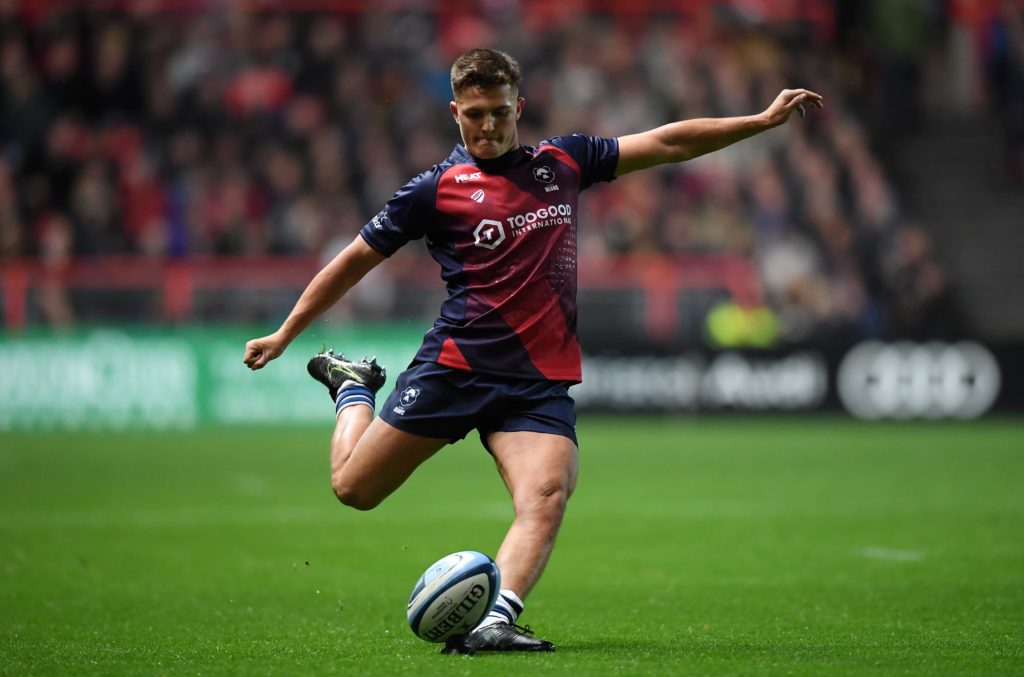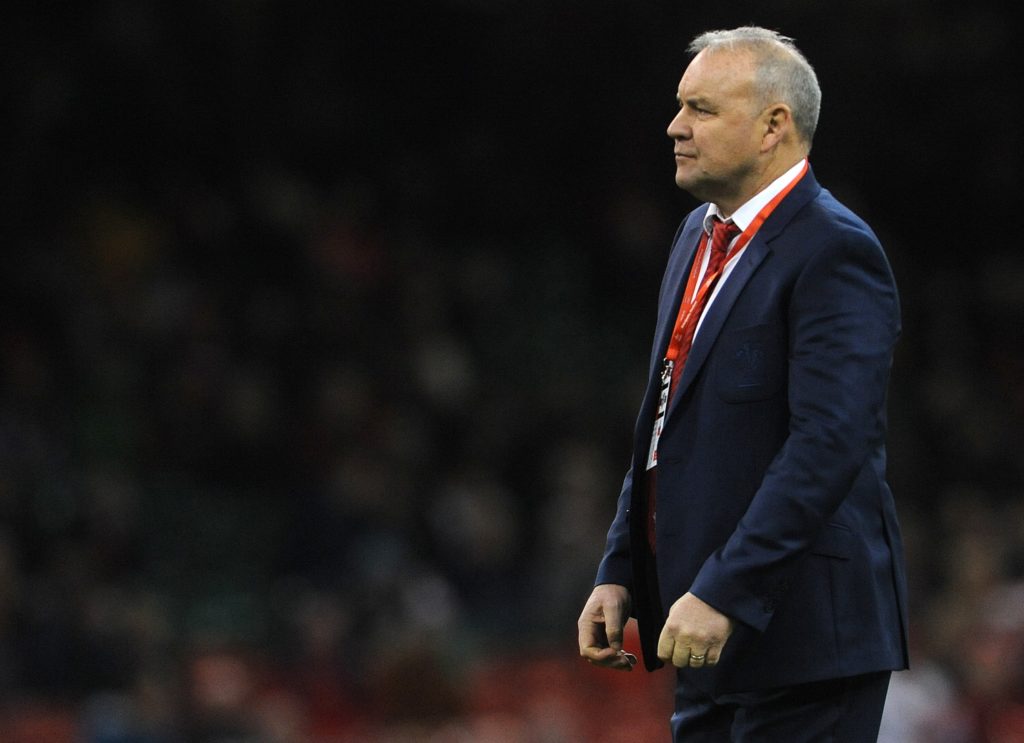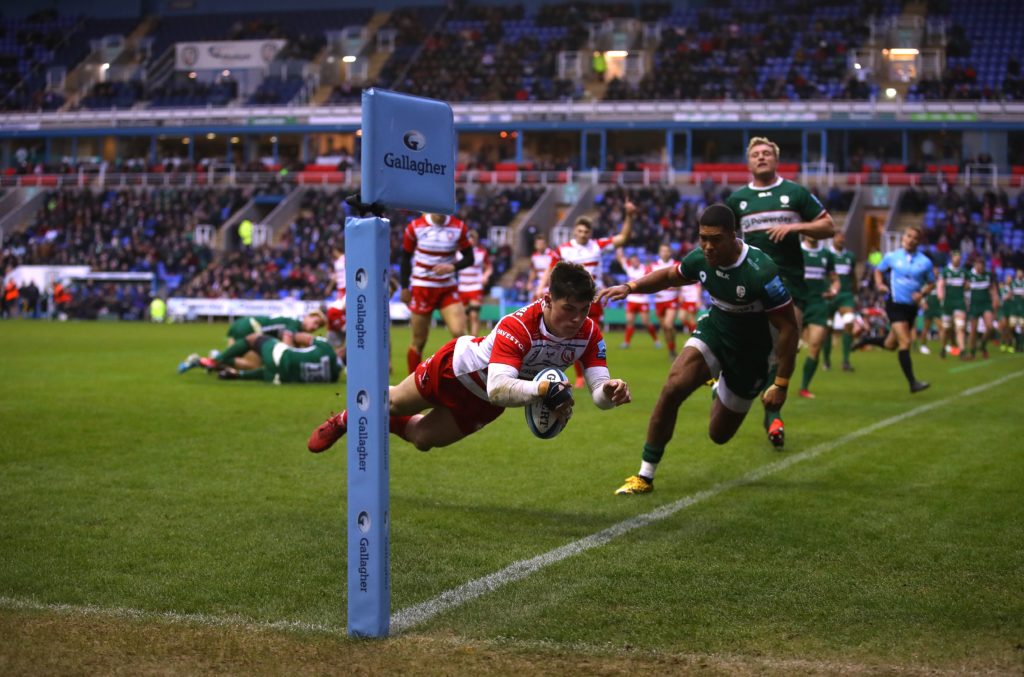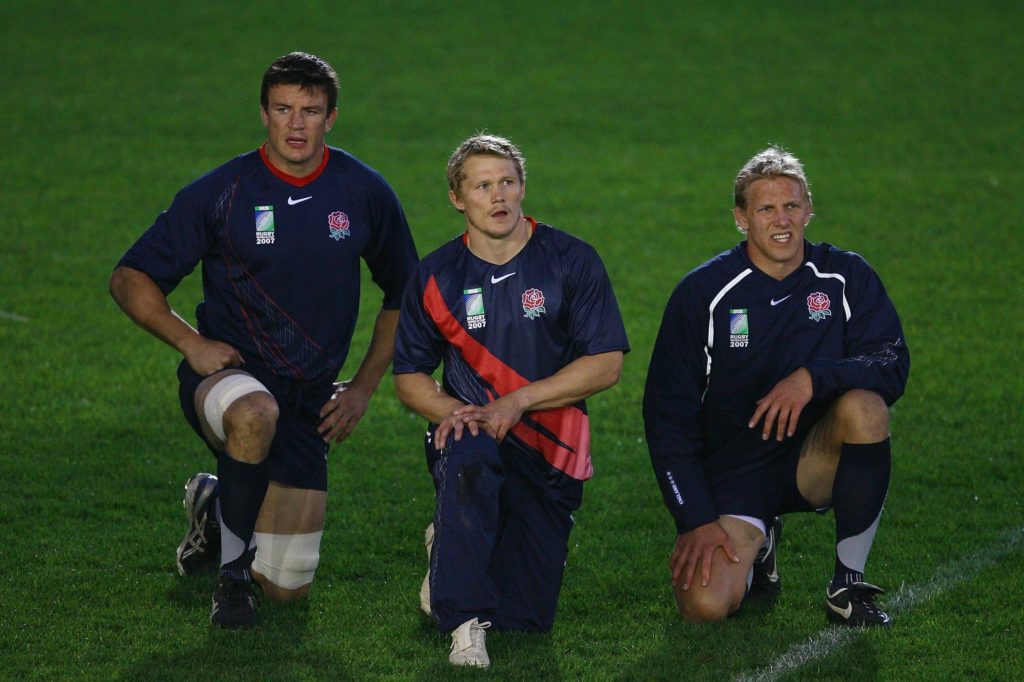There was a story that did the rounds after New Zealand-born Matt Cardey won his one and only Wales cap, that his eligibility was flawed. His grandmother, the legend goes, was born in a small Monmouthshire hamlet, just tucked inside the Welsh border. The issue was, when she was born the border was in a different place, and the hamlet in question was nestled not in bucolic, rural East Wales, but in another country altogether – England.
And while the stream that may or may not have burbled from one side to the other would have trickled from the same source, and the wildlife that shuffled back and forth over the arbitrary line that separated the countries would have failed to sniff any difference in the air on either side, in rugby terms, those inches, or feet, may as well have been an impenetrable brick wall.
The rumour persisted in certain quarters that Matt Cardey’s fledgling international career came to a shuddering halt because of the quaint redrawing of county boundaries in the United Kingdom decades earlier.
When Matt Cardey’s grandmother was born, was she actually born in Wales or not? It seems like a ludicrously pedantic consideration, but at the time, the WRU was reeling from the Grannygate saga, and eager not to tread in another eligibility shaped dog turd.
The truth, sadly, is more prosaic, and contrary to the raconteur’s prerogative, I am going to let the truth get in the way of a good story. Between the Acts of Union in the sixteenth century (when Wales was brought into the English state), and the introduction of the Welsh local Government Act of 1972, Monmouthshire’s status was a matter of dispute. Officially and legally speaking, it was part of England, but could be “linked to Wales for administrative purposes”. Therein lay the confusion. When Matt Cardey’s grandmother was born, was she actually born in Wales or not? It seems like a ludicrously pedantic consideration, but at the time, the WRU was reeling from the Grannygate saga, and was eager not to tread in another eligibility shaped dog turd.
Just as national borders can be arbitrary and fluid, so too can national identity. Hence the cries of anguish and accusations of betrayal when a rugby player swims in the muddy waters that separate two, or more, countries. In an increasingly globalised world, it should come as a little surprise that some players will have to make a choice when it comes to playing international rugby.
And why am I talking about this now? Because in the wake of Wayne Pivac’s Welsh squad announcement, and more specifically the inclusion of Callum Sheedy, the eligibility argument has once again reared its head.

Those who cling tightly to the notion of a fixed national identity are frothing on social media over the presence of those who apparently aren’t Welsh enough. Pivac’s squad also contains Johnny Williams, Jonah Holmes, and Nick Tompkins, all of whom have played for England representative sides, or had ambitions to do so.
Callum Sheedy is a prodigiously talented fly-half, currently pulling the strings for Bristol in the Gallagher Premiership. He nervelessly slotted 22 points to help the Bears to a first European title – albeit in the Challenge rather than the Champions Cup – and has played his part in converting a legion of casual fans to their cause with their breathless brand of total rugby.
Sheedy is Cardiff born-and-bred, a product of St Peters, a club in the east of the city that basked in the global spotlight in 1993 when it beat a star-studded Cardiff RFC in the fifth round of the Welsh Cup. It remains the biggest shock in Welsh club history.
Sheedy’s mother is Welsh, his father Irish, so he’s had dual nationality from birth and as a result he could have played for Ireland without ever having set foot inside the country. But after coming through the age grades at Cardiff Blues, he was offered a scholarship at Millfield, and has been based in England ever since. It’s a well-trodden path for many a talented young Welsh player.
Wayne Pivac is a shrewd operator, and was well aware of the three-way tug of war, but to reduce Sheedy’s selection to one of rugby politics is to ignore the fact that his performances have demanded inclusion.
That residency period makes him eligible for England as well. Indeed, he has already pulled on the white jersey, coming off the bench in June last year against the Barbarians. Critically, it was billed as an “England XV” as the match was not deemed an official test. He’s also pulled on the red jersey – for Wales U16s, and the green jersey – for Ireland U19s. Neither of these sides are the official “second team” of the nations concerned, so none of these appearances committed Sheedy to either country. When he was offered a place in the 2015 Wales U20s squad, he declined, on the grounds that a cap for the U20s would commit him to the Welsh cause. He was keeping his options open.
Not anymore, it would seem. A cap in the autumn will end the debate. There are those who see his selection as a means to an end. A pre-emptive strike to secure his services for the future. Wayne Pivac is a shrewd operator, and was well aware of the three-way tug of war, but to reduce Sheedy’s selection to one of rugby politics is to ignore the fact that his performances have demanded inclusion. This is not a sop to the future; it’s about the here and now.

Pivac cultivated a Scarlets side that played an innovative, attack-minded brand of rugby. Once his blueprint had filtered through to every member of his squad, it delivered a devastating performance against a bigger, stronger and much-fancied Munster side in the most one-sided Pro12 final the tournament has witnessed. It was a victory based on pace, width and invention. He likes a fly-half who plays right in the teeth of the opposition defence. Callum Sheedy does this, and knows how to bring the best out of the world class talent around him. His selection is warranted.
Yet there are those who accuse him of hedging his bets, of playing one country against one another, or of not wearing his heart on his sleeve. The counter-argument to that is that not everyone is born with a profound sense of patriotism that quickens the pulse and swells the heart. Identity can be complex and multi-layered. Sheedy was eligible for three countries, and only he knows if he feels pulled more towards one than the others. Either way, it’s his prerogative. Wayne Pivac said the conversation they had when he rang about his availability lasted less than a minute. Whatever his misgivings about committing in the past, it appears his destiny now lies in the country of his birth.
Ross Moriarty was another promising Welsh player lured across the border, but with that surname, and those relatives, he was never going to play for the England senior side.
His Bristol teammate and fellow Cardiffian, Ioan Lloyd, has also been selected. His inclusion – as a teenager barely out of school – is arguably more of a story, but hasn’t attracted the same level of interest. Is this because Lloyd is a Welsh speaker, educated through the medium of Welsh, with a conspicuously “Welsh” name? Is he considered by the self-appointed gatekeepers of nationality to be more intrinsically Welsh? I suspect so.
Pedigree plays its part as well. Ross Moriarty was another promising Welsh player lured across the border, this time to Hartpury College, where his talent was nourished, and his career blossomed to the extent that he won a Junior World Cup with England. But with that surname, and those relatives, he was never going to play for the England senior side. And no one was going to accuse him of switching allegiance when it was convenient to do so. Not to his face anyway.

A third uncapped player – Louis Rees-Zammit – is also a Cardiffian. His sensational run of form in an inconsistent Gloucester side has prompted many – including Paul Scholes and Andy Goode – to lobby for his inclusion in England’s set-up. While he has one of the silkiest sidesteps in the business, he chose to confront this issue head on, responding to Goode on Instagram with pithiest of replies – a Welsh flag emoji. This may have endeared him to the sizeable section of the Welsh support base whose devotion to their national side is akin to religious fervour, but it doesn’t make him any more Welsh. It just means his notion of Welsh identity is less layered, and less complex than Callum Sheedy’s. Again, it’s his prerogative.
Johnny Williams is another who’s played for England, in that same uncapped Barbarians match as Sheedy as it happens. He was raised in England, and also qualifies for Scotland, but his father is Welsh. And if he gets his cap in the autumn, his name in the programme will read John Bleddyn Rhys Williams. That sounds to me like someone with fairly strong Welsh heritage as opposed to someone who has jumped on the gravy train.
Why should choosing Wales over England represent a lowering of expectations? In the last 15 years, Wales have won five Six Nations Championships to England’s four.
He was clearly in England’s thoughts, and perhaps their future plans, so it’s not as though he’s switched allegiance because the England avenue wasn’t open. Had he not been diagnosed with testicular cancer last year, he may well have been selected in England’s World Cup squad. Another accusation levelled at these players is that they’re “England rejects” as though choosing Wales is accepting second best. Perhaps this is where aggrieved Wales fans need to shake off their inferiority complex. Why should choosing Wales over England represent a lowering of expectations? In the last 15 years, Wales have won five Six Nations Championships to England’s four. England’s £20,000 match fee was clearly an attractive carrot in the past, but those who are good enough to represent Wales are hardly poorly remunerated.
What seems to stoke the most resentment in these cases is who the choice is between. Because of a shared border, the likelihood of someone being qualified for Wales and England is higher. And because England are Wales’ bitterest rivals, the idea of someone considered English crossing the bridge, indeed, the Rubicon, to swap the rose for the three feathers is particularly unpalatable. And as with many dimensions in the twisted, incestuous relationship between the two nations, the bitterness flows more forcefully in one direction than the other. Josh Lewsey and Martin Corry are both half-Welsh, but no English fan ever derided them for their choice, or questioned their wholehearted commitment to their country. The fact they both have Welsh-speaking mothers was only ever brought up as a bit of curious trivia during the build-up to a Wales-England game.

Everyone is different. Everyone’s motivations are different. Whether we like it or not, there will be some players who prefer the thud of a payment into their bank account to the roar of a stadium full of fans. Some are born with a burning desire to play for their country, and to connect with their forebears. Others just want to play and the bigger the audience the better. Some paths are narrow and pre-ordained, others are mazy and unpredictable. In the amateur era, when rugby was arguably a more noble pursuit, the issue of nationality was clearer. When it’s your job, and opportunities arise that can enrich you personally and professionally, decisions are necessarily more dispassionate. But we all have a gut instinct, and when the time came for Callum Sheedy to decide, it seemingly took him less than a minute.
The players don’t make the rules. And no union can be blamed for acting within them. In a professional sport, where winning and losing can mean the difference between keeping your job or losing it, any coach would be foolish to make selection decisions based on a subjective notion of nationality. If a player’s eligible, and you want him, you pick him.
Deep down, we’d all like to imagine that every dressing room is filled with square-jawed patriots ready to die for the badge, eyes popping, veins bulging, invoking the spirits of their ancestors and vowing to do it for their forefathers. Much as Phil Bennett did in his quasi-mythical speech about the English, we want to draw inspiration from the past to fuel our passion on the pitch. We want it to mean something. And it still does. It just doesn’t always mean the same thing to everyone.
If you’ve enjoyed this article, please share it with friends or on social media. We rely solely on new subscribers to fund high-quality journalism and appreciate you sharing this so we can continue to grow, produce more quality content and support our writers.


Comments
Join free and tell us what you really think!
Sign up for free